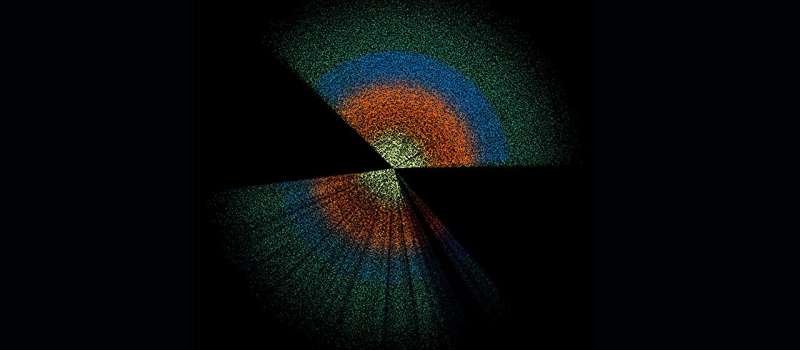A recent study led by researchers from the University of Geneva has provided new insights into the behavior of dark matter, suggesting it behaves similarly to ordinary matter under the influence of gravity. Published on November 3, 2025, in the journal Nature Communications, the findings indicate that dark matter falls into gravitational wells created by massive celestial bodies in a manner comparable to that of ordinary matter.
Dark matter, which is believed to make up approximately five times the amount of ordinary matter in the universe, has long puzzled scientists due to its invisibility and the mystery surrounding its properties. This research team aimed to explore whether dark matter adheres to known physical laws or if it is influenced by an unknown force.
Key Findings on Dark Matter’s Behavior
The study, co-authored by Camille Bonvin, an associate professor in the Department of Theoretical Physics at UNIGE, focused on comparing the velocities of galaxies with the depths of gravitational wells. Bonvin explained, “If dark matter is not subject to a fifth force, then galaxies—which are mostly made of dark matter—will fall into these wells like ordinary matter, governed solely by gravity.”
Through their analysis of cosmological data, the researchers concluded that dark matter indeed appears to fall into gravitational wells in the same way that ordinary matter does, adhering to Euler’s equations which describe the motion of fluids under forces. This finding reinforces the understanding that dark matter, while elusive, operates under familiar gravitational principles.
Nastassia Grimm, the study’s first author and a former postdoctoral researcher at UNIGE, emphasized that while these results support the notion of dark matter behaving like ordinary matter, they do not categorically rule out the existence of an unknown force. “If such a fifth force exists, it cannot exceed 7% of the strength of gravity,” she noted, indicating that stronger forces would have been detected in their analysis.
Future Research Directions
These findings represent a significant advancement in the quest to comprehend dark matter. The research team highlighted that the next phase of their investigation will focus on determining whether a fifth force influences dark matter. Upcoming experiments, including the Legacy Survey of Space and Time (LSST) and the Dark Energy Spectroscopic Instrument (DESI), are expected to be sensitive enough to detect forces as weak as 2% of gravity, which could provide further clarity on this enigmatic component of the universe.
Isaac Tutusaus, a researcher affiliated with the Institute of Cosmology and Gravitation and the Midi-Pyrénées Observatory at the University of Toulouse, expressed optimism about future findings. He stated, “These upcoming data should allow us to learn even more about the behavior of dark matter.”
As researchers continue to unravel the complexities of dark matter, this study marks a pivotal moment in our understanding of the universe, advancing the dialogue on the fundamental forces that govern it.







